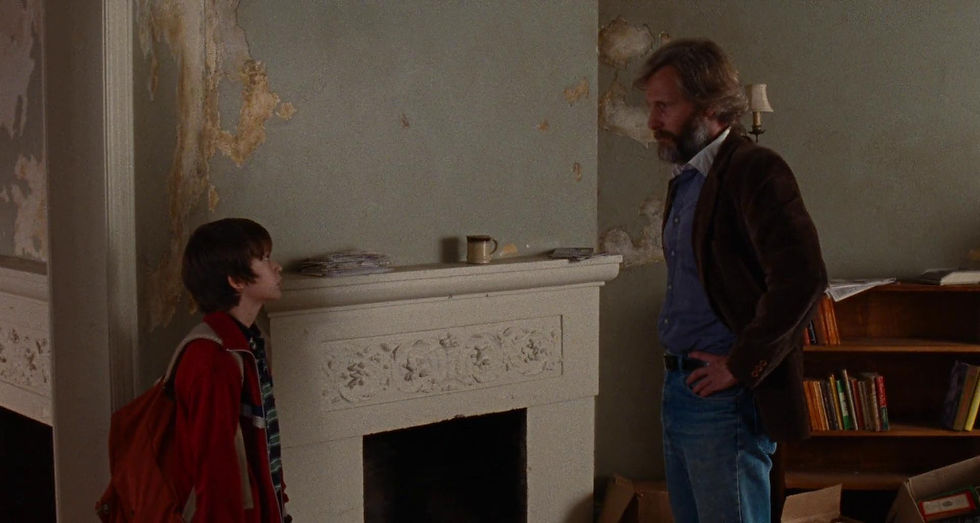An interview with Owen Kline
- oliverjlwebb
- Apr 2, 2023
- 3 min read

Owen Kline is a filmmaker and actor. His directorial debut feature film, Funny Pages was released in 2022. I spoke with Owen about his role in The Squid and the Whale, working with Noah Baumbach, Funny Pages and his favourite part of the filmmaking process.
Did you want to become a cartoonist before pursuing a career in film?
They were always hand in hand, but I got more focused with film in college just because cartooning got lonely.
Are there any filmmakers/films that have particularly influenced your work?
There are many filmmakers I feel like I’ve quote-unquote “studied”, but the ones who I go back to the most for filmmaking reference if I'm storyboarding are Frank Tashlin, Chuck Jones, Joe Dante, Mike Leigh, Altman, Jonathan Demme, Ken Russell, John Huston, Tod Browning, James Whale… Both the usual and unusual suspects. And Orson Welles, but it feels totally ridiculous to say.
How did you land the role of Frank Berkman in The Squid and the Whale?
Noah Baumbach was dating Jennifer Jason Leigh at the time and wanted to hear me read the part. He was struggling with casting it and didn’t want a child actor and was hoping for something more organic with someone who wasn’t going up for kid’s commercials. Someone who wasn’t so “cute.” So that’s how it happened.

What was the process like working with Noah Baumbach?
He was straightforward about the material and good humored. And he got me into SCTV which is still important to me. Just as exciting was getting to work with DP Bob Yeoman, and seeing how he would put together a scene with Noah.
Your feature directorial debut, Funny Pages was released last year. What were your initial conversations with cinematographers Hunter Zimny and Sean Price Williams about the look of the film?
Run towards Looney Tunes colors and counter it with vomit-like fluorescent lighting. Sickly sweet.
What was the most challenging aspect of the production, and how did you overcome that?
There were four years where I was just editing it trying to perform CPR to an hour of the film that couldn’t function in any way I cut it. So I severed an hour and looked at what I had that was really working, which was about 56 minutes, and wrote a new 45 pages of material to stick into the beginning, middle and a tiny pinch at the end. Then went and shot that. Thankfully there was a contingency in the budget for a week’s reshoot. That was its own set of problems, dealing with continuity with teenage characters that were teens when we shot it that were now 20. It also had an interesting effect where half the footage is unconscious of the other half which I think adds to the movie in its own way.
Which part of the filmmaking process do you enjoy most?
Editing. You get to fix what you screwed up. You go so down the tunnel sometimes that you forget to eat meals.
How has growing up in an acting family informed your work as an actor and director?
Not particularly, besides a little bit of a perspective on acting, which is in its essence listening and responding. They tell you movies take a while, and that you do lots of different versions of takes and edits and whatnot, but it wasn’t really a training ground. It’s hard to say.
Are you currently working on any projects?
Yes, but not anything I can talk about since they are propaganda films for the military.

Comments